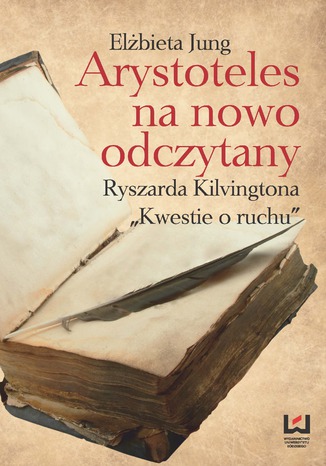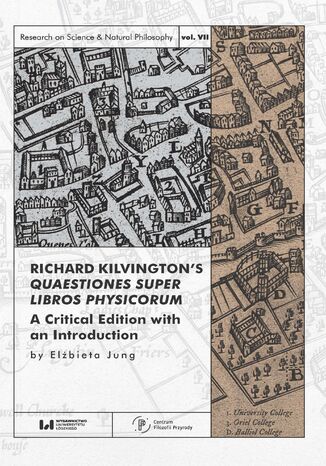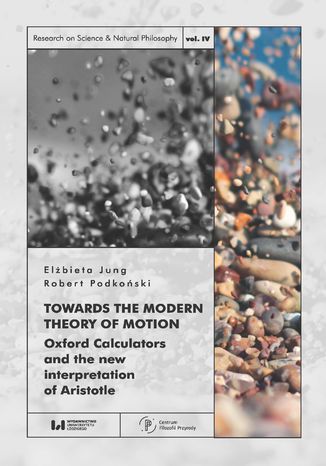Категорії
-
- Біткойн
- Ділова жінка
- Коучинг
- Контроль
- Електронний бізнес
- Економіка
- Фінанси
- Фондова біржа та інвестиції
- Особисті компетенції
- Комп'ютер в офісі
- Комунікація та переговори
- Малий бізнес
- Маркетинг
- Мотивація
- Мультимедійне навчання
- Нерухомість
- Переконання та НЛП
- Податки
- Соціальна політика
- Порадники
- Презентації
- Лідерство
- Зв'язки з громадськістю
- Звіти, аналізи
- Секрет
- Соціальні засоби комунікації
- Продаж
- Стартап
- Ваша кар'єра
- Управління
- Управління проектами
- Людські ресурси (HR)
-
- Architektura i wnętrza
- Безпека життєдіяльності
- Biznes i Ekonomia
- Будинок та сад
- Електронний бізнес
- Ekonomia i finanse
- Езотерика
- Фінанси
- Особисті фінанси
- Бізнес
- Фотографія
- Інформатика
- Відділ кадрів та оплата праці
- Для жінок
- Комп'ютери, Excel
- Бухгалтерія
- Культура та література
- Наукові та академічні
- Охорона навколишнього середовища
- Впливові
- Освіта
- Податки
- Подорожі
- Психологія
- Релігія
- Сільське господарство
- Ринок книг і преси
- Транспорт та спедиція
- Здоров'я та краса
-
- Офісні застосунки
- Бази даних
- Біоінформатика
- Бізнес ІТ
- CAD/CAM
- Digital Lifestyle
- DTP
- Електроніка
- Цифрова фотографія
- Комп'ютерна графіка
- Ігри
- Хакування
- Hardware
- IT w ekonomii
- Наукові пакети
- Шкільні підручники
- Основи комп'ютера
- Програмування
- Мобільне програмування
- Інтернет-сервери
- Комп'ютерні мережі
- Стартап
- Операційні системи
- Штучний інтелект
- Технологія для дітей
- Вебмайстерність
-
- Антології
- Балада
- Біографії та автобіографії
- Для дорослих
- Драми
- Журнали, щоденники, листи
- Епос, епопея
- Нарис
- Наукова фантастика та фантастика
- Фельєтони
- Художня література
- Гумор, сатира
- Інше
- Класичний
- Кримінальний роман
- Нехудожня література
- Художня література
- Mity i legendy
- Лауреати Нобелівської премії
- Новели
- Побутовий роман
- Okultyzm i magia
- Оповідання
- Спогади
- Подорожі
- Оповідна поезія
- Поезія
- Політика
- Науково-популярна
- Роман
- Історичний роман
- Проза
- Пригодницька
- Журналістика
- Роман-репортаж
- Romans i literatura obyczajowa
- Сенсація
- Трилер, жах
- Інтерв'ю та спогади
-
- Археологія
- Bibliotekoznawstwo
- Кінознавство / Теорія кіно
- Філологія
- Польська філологія
- Філософія
- Finanse i bankowość
- Географія
- Економіка
- Торгівля. Світова економіка
- Історія та археологія
- Історія мистецтва і архітектури
- Культурологія
- Мовознавство
- літературні студії
- Логістика
- Математика
- Ліки
- Гуманітарні науки
- Педагогіка
- Навчальні засоби
- Науково-популярна
- Інше
- Психологія
- Соціологія
- Театральні студії
- Богослов’я
- Економічні теорії та науки
- Transport i spedycja
- Фізичне виховання
- Zarządzanie i marketing
-
- Безпека життєдіяльності
- Історія
- Дорожній кодекс. Водійські права
- Юридичні науки
- Охорона здоров'я
- Загальне, компендіум
- Академічні підручники
- Інше
- Закон про будівництво і житло
- Цивільне право
- Фінансове право
- Господарське право
- Господарське та комерційне право
- Кримінальний закон
- Кримінальне право. Кримінальні злочини. Кримінологія
- Міжнародне право
- Міжнародне та іноземне право
- Закон про охорону здоров'я
- Закон про освіту
- Податкове право
- Трудове право та законодавство про соціальне забезпечення
- Громадське, конституційне та адміністративне право
- Кодекс про шлюб і сім'ю
- Аграрне право
- Соціальне право, трудове право
- Законодавство Євросоюзу
- Промисловість
- Сільське господарство та захист навколишнього середовища
- Словники та енциклопедії
- Державні закупівлі
- Управління
-
- Африка
- Альбоми
- Південна Америка
- Центральна та Північна Америка
- Австралія, Нова Зеландія, Океанія
- Австрія
- Азії
- Балкани
- Близький Схід
- Болгарія
- Китай
- Хорватія
- Чеська Республіка
- Данія
- Єгипет
- Естонія
- Європа
- Франція
- Гори
- Греція
- Іспанія
- Нідерланди
- Ісландія
- Литва
- Латвія
- Mapy, Plany miast, Atlasy
- Мініпутівники
- Німеччина
- Норвегія
- Активні подорожі
- Польща
- Португалія
- Інше
- Przewodniki po hotelach i restauracjach
- Росія
- Румунія
- Словаччина
- Словенія
- Швейцарія
- Швеція
- Світ
- Туреччина
- Україна
- Угорщина
- Велика Британія
- Італія
-
- Філософія життя
- Kompetencje psychospołeczne
- Міжособистісне спілкування
- Mindfulness
- Загальне
- Переконання та НЛП
- Академічна психологія
- Психологія душі та розуму
- Психологія праці
- Relacje i związki
- Батьківство та дитяча психологія
- Вирішення проблем
- Інтелектуальний розвиток
- Секрет
- Сексуальність
- Спокушання
- Зовнішній вигляд та імідж
- Філософія життя
-
- Біткойн
- Ділова жінка
- Коучинг
- Контроль
- Електронний бізнес
- Економіка
- Фінанси
- Фондова біржа та інвестиції
- Особисті компетенції
- Комунікація та переговори
- Малий бізнес
- Маркетинг
- Мотивація
- Нерухомість
- Переконання та НЛП
- Податки
- Соціальна політика
- Порадники
- Презентації
- Лідерство
- Зв'язки з громадськістю
- Секрет
- Соціальні засоби комунікації
- Продаж
- Стартап
- Ваша кар'єра
- Управління
- Управління проектами
- Людські ресурси (HR)
-
- Антології
- Балада
- Біографії та автобіографії
- Для дорослих
- Драми
- Журнали, щоденники, листи
- Епос, епопея
- Нарис
- Наукова фантастика та фантастика
- Фельєтони
- Художня література
- Гумор, сатира
- Інше
- Класичний
- Кримінальний роман
- Нехудожня література
- Художня література
- Mity i legendy
- Лауреати Нобелівської премії
- Новели
- Побутовий роман
- Okultyzm i magia
- Оповідання
- Спогади
- Подорожі
- Поезія
- Політика
- Науково-популярна
- Роман
- Історичний роман
- Проза
- Пригодницька
- Журналістика
- Роман-репортаж
- Romans i literatura obyczajowa
- Сенсація
- Трилер, жах
- Інтерв'ю та спогади
-
- Філософія життя
- Міжособистісне спілкування
- Mindfulness
- Загальне
- Переконання та НЛП
- Академічна психологія
- Психологія душі та розуму
- Психологія праці
- Relacje i związki
- Батьківство та дитяча психологія
- Вирішення проблем
- Інтелектуальний розвиток
- Секрет
- Сексуальність
- Спокушання
- Зовнішній вигляд та імідж
- Філософія життя
Arystoteles na nowo odczytany. Ryszarda Kilvingtona
Książka jest efektem wieloletnich badań dotyczących historii nauki średniowiecznej, mianowicie początków fizyki matematycznej. Można w niej wyodrębnić dwie części: monografię, w której autorka odpowiada na pytanie, czy XIV-wieczna fizyka matematyczna, inspirowana nominalistyczną filozofią Wilhelma Ockhama, doprowadziła do zerwania z jakościową fizyką Arystotelesa już w wieku XIV, oraz – tłumaczenie Kwestii o ruchu Ryszarda Kilvingtona, jednego z twórców szkoły Oksfordzkich Kalkulatorów. Z pozycji nominalistycznej, z jednej strony odrzuca on dużą część podejmowanej przez Arystotelesa problematyki, z drugiej zaś, wypełniając obowiązki nauczycielskie na średniowiecznym uniwersytecie, poddaje teorie Stagiryty interpretacji pozwalającej odnaleźć w jego myśli elementy bliskie – jak się Kilvingtonowi wydaje – jego poglądom. W swoich kwestiach Kilvington podejmuje analizę zagadnienia zmian, rozumianych, zgodnie z definicją Arystotelesa, jako ruch przestrzenny, zmiany jakościowe oraz ilościowe w ujęciu nominalistycznym, czyniąc matematykę właściwym językiem opisu przyrody. Są one też rezultatem jego nauczania, czasami zapisu ćwiczeń odbywanych w klasie ze studentami, zatem tekst ten ma również walor historyczny, ponieważ pokazuje nam, jak wielkie wymagania stawiano studentom średniowiecznym i jak dobrze się z nich wywiązywali. Jakiego rodzaju były to „obliczenia” i jakie dzięki nim można osiągnąć rezultaty, Czytelnik dowie się z lektury książki.
Richard Kilvington\'s Quaestiones super libros Physicorum. A Critical Edition with an Introduction
In the late Middle Ages, natural philosophy focused primarily on the analysis of Aristotle's works, along with Averroes' commentaries. Among other works, Aristotle's Physics was taught at universities, and commentaries on it were the result of such classes. The present book is the result of the lectures of Richard Kilvington (ca. 1302-1361), one of the founders of the so-called School of Oxford Calculators, English scholars active in the mid-14th century. The volume contains a critical edition of Richard Kilvington's Questions on the Physics from Latin manuscripts, provided with footnotes referring to the sources used by Kilvington, as well as to the works of his contemporaries. The edition is preceded by an introduction presenting the arguments for the reconstruction of this commentary and the history of the manuscripts containing Kilvington's questions. This extensive commentary, which the author reconstructed on the basis of manuscript evidence, consists of eight so-called disputed questions. Kilvington discusses almost all the topics covered by Aristotle in his works on natural philosophy and the theory of knowledge, and logical considerations also occupy a considerable space. Kilvington is mainly interested in issues related to: the formation of complex material bodies, which occurs primarily in the process of mixing, the problem of describing the rules of local motion, and the conditions that determine such motion, i.e. the concepts of time, space, and vacuum. Kilvington's commentary is an original, sometimes innovative interpretation of the theories of Aristotle and Averroes. It was quoted many times and was an inspiration for contemporary and later thinkers. The research achievements of these thinkers contributed to the development of modern natural philosophy.
Towards the Modern Theory of Motion. Oxford Calculators and the new interpretation of Aristotle
Elżbieta Jung, Robert Podkoński
The problem of the continuity of science from the medieval to the modern times of the 17th century, when Galileo and Newton developed the correct theory of mechanics, occupied historians of science from the beginning of the 20th century. Some believe that the fourteenth-century English scholars who created the School of Oxford Calculators and their French and Italian followers. with their solutions, laid the foundations for the development of modern physics. Others believe that medieval natural philosophy made no contribution to the development of modern science. The presented book is a voice in this discussion and an attempt to answer the question about the continuity of science. Considering how much has been discovered, edited and written about the Oxford Calculators, the book reviews and compares the results of our research with works of the other historians' research into the intellectual heritage of these 14th century English thinkers in order to enrich and update the views on the Oxford Calculators' natural philosophy in perhaps its most fundamental aspect - at least from the point of view of Aristotle's philosophy - namely the subject of "science of local motion." The discussion are mostly focused on topics that were important to medieval thinkers and not those that could be most interesting from the modern point of view, and the research are directed on the Oxford Calculators' tradition in science toward a prospecting of the innovative character of their teaching, and here first of all against the background of Aristotelian theories, and then the subsequent search for possible innovations which could have inspired early modern scientists. As the conclusions of the research on the theories of Oxford calculators are still formulated mainly on the basis of analyzes of incomplete printed texts, the critical editions of Latin texts are offered. These are not only the most famous Calculators' works, such as William Heytesbury's De tribus praedicamentis: de motu locali or John Dumbleton's Part III of the Summa logicae et philosophiae naturalis, but also of a hither to unknown work by Richard Kilvington, i.e., his question on local motion and the question on local motion written by the anonymous author of the treatise De sex inconvenientibus.



